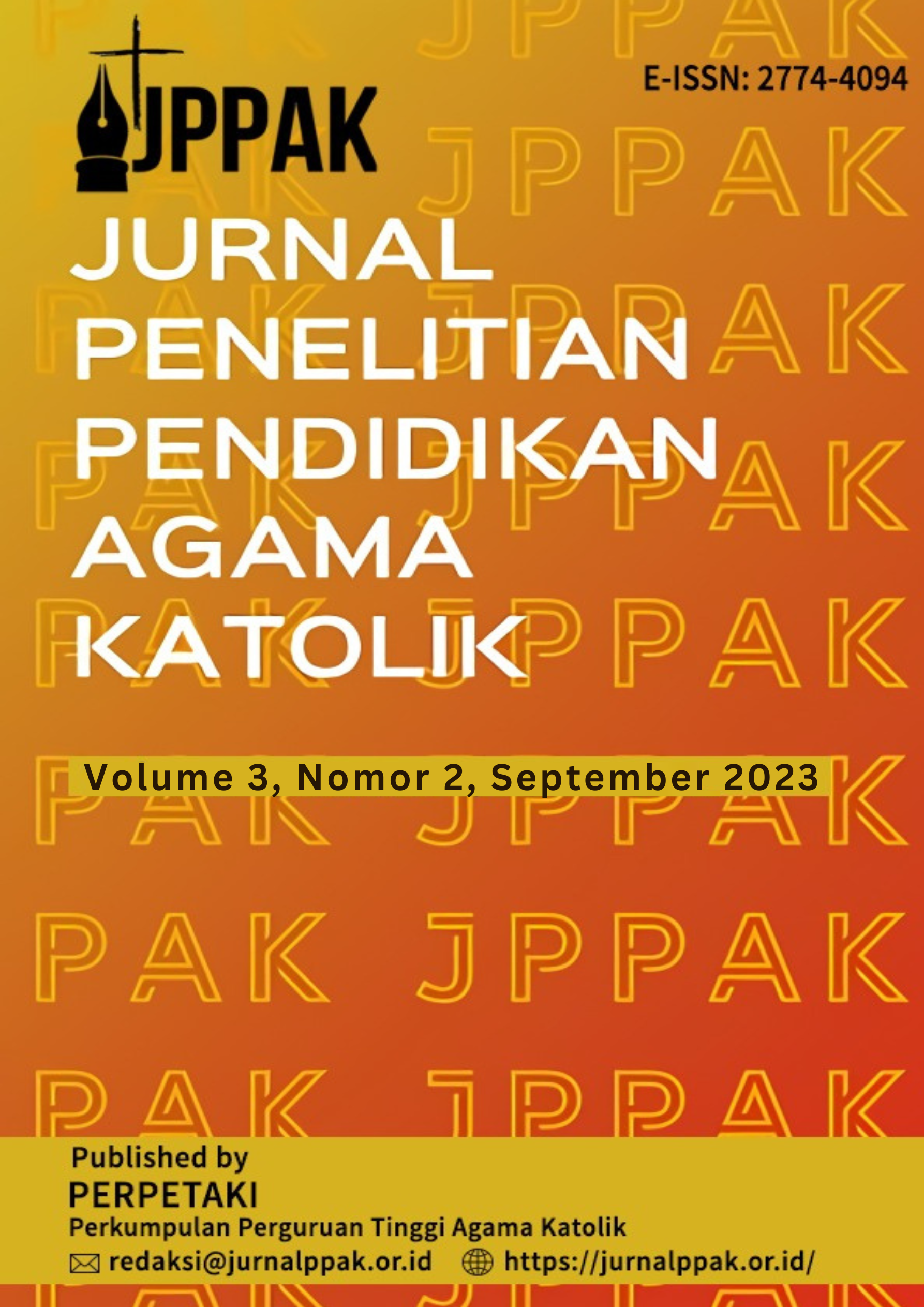The Involvement of the Faithful in the Dialogue of the Mission of the Local Church According to Stephen B. Bevans
DOI:
https://doi.org/10.52110/jppak.v3i2.93Keywords:
Bevans; Dialogue; Contextual; Mission; PraxisAbstract
The church has a missionary nature. Missionary work is carried out in various ways and its applications. There are many problems that occur, the Church as a missionary is present and participates in solving all the problems that occur. The local church of the Palangka Raya diocese is one of the fields of mission work in spreading the Bible among a pluralistic society. The mission of developing the life of the Catholic faith in Palangka Raya diocese has a long struggle and process. Various methods were used by the missionaries so that salvation did not only occur in certain communities but also among the people living in Central Kalimantan. The establishment of a Pastoral school in the Palangka Raya diocese is one of the efforts to meet the needs of the people and the Church takes part in meeting these needs. This research methodology uses the Research library method. In this study, researchers collected sources from several data documentation from the profile of the Palangka Raya Diocese. Then it is analyzed with Stephen Bevans' mission theology about church missionaries. Based on the analysis, the researcher found that the local Church of the Palangka Raya Diocese was active and participatory in missionary work by missionaries and catechists as a form of faith development.
Downloads
##submission.downloads##
Submitted
Published
How to Cite
Issue
Section
License
Copyright (c) 2023 Edwind Satri Simatupang

This work is licensed under a Creative Commons Attribution-ShareAlike 4.0 International License.
Copyright Notice and Permissions
Jurnal Penelitian Pendidikan Agama Katolik offers immediate open access to all its content on the principle to make researches freely available to the public, especially to the scholars, to support greater global exchanges of knowledge. This journal encourages all scholarly authors to allow their research openly available, free access and without time restrictions.
All articles published Open Access will be immediately and permanently free for everyone to read and download. Under the CC BY-SA 4.0 license, authors retain ownership of the copyright for their article, however authors grant others permission to use the content of publications in Jurnal Penelitian Pendidikan Agama Katolik (JPPAK) in whole or in part provided that the original work is properly cited. Users (redistributors) of Jurnal Penelitian Pendidikan Agama Katolik (JPPAK) are required to cite the original source by including at least: the full title of the article, the author's or authors' full name(s), JPPAK as the initial source of publication, year of publication and volume number using a propriate citing method.
Copyright encompasses exclusive rights to reproduce and deliver the article in all form and media, including reprints, photographs, microfilms and any other similar reproductions, as well as translations. The reproduction of any part of this journal, its storage in databases and its transmission by any form or media, such as electronic, electrostatic and mechanical copies, photocopies, recordings, magnetic media is prohibited without consent of Jurnal Penelitian Pendidikan Agama Katolik (JPPAK).
Jurnal Penelitian Pendidikan Agama Katolik (JPPAK) is licensed under a Creative Commons Attribution Share-Alike 4.0 International. (CC BY-SA 4.0)
Authors who publish with Jurnal Penelitian Pendidikan Agama Katolik (JPPAK) agree to the following terms:
- Authors retain copyright and grant the journal right of first publication with the work simultaneously licensed under a Creative Commons Attribution Share-Alike 4.0 International (CC BY-SA 4.0) license that allows others to share the work with an acknowledgement of the work's authorship and initial publication in this journal.
- Authors are able to enter into separate, additional contractual arrangements for the non-exclusive distribution of the journal's published version of the work (e.g., post it to an institutional repository or publish it in a book), with an acknowledgement of its initial publication in this journal.
- Authors are permitted and encouraged to post their work online (e.g., in institutional repositories or on their website) after the publication on JPPAK, as long as it not published on other OJS for it will be treated as plagiarism by plagiarism checker apps. It can lead to productive exchanges, as well as earlier and greater citation of published work (See The Effect of Open Access).












